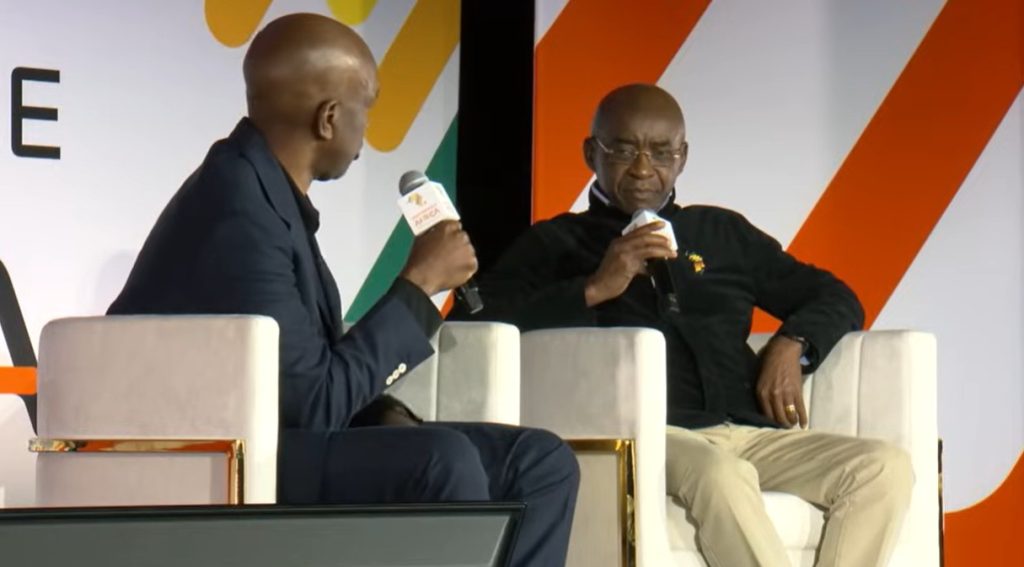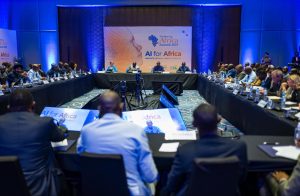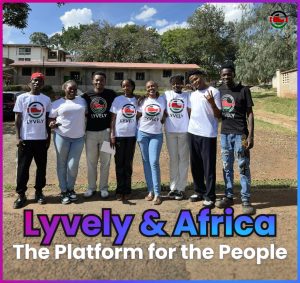African AI Revolution Accelerates: Tech Titans Urge Innovation Over Regulation and Predict Startup Boom

TOP AFRICA NEWS Reporter
NEW YORK, NY – Leading figures in the global technology sector, Strive Masiyiwa and Dr. James Manyika, reprised their discussion on Africa’s trajectory in the Artificial Intelligence (AI) revolution, highlighting the unprecedented pace of industry change and massive opportunities emerging across the continent.
The conversation, held recently at a United Nations Global Compact session, revisited goals set two years prior: achieving extraordinary investment in Africa’s infrastructure and ensuring Africa transitioned from merely using AI to becoming a global pioneer and innovator.
“It’s been an extraordinary two years… this industry is moving at a pace I have never seen any industry go before,” stated Mr. Strive Masiyiwa, Founder and Executive Chairman of Econet Global and Cassava Technologies. He noted that Africa has not “sat on our hands” and is deeply engaged in governance and policy debates.
Dr. James Manyika, Senior Vice President at Google, underscored the critical role of infrastructure. Google is making significant investments in connectivity, including undersea cables, and is focused on creating a distributed cloud that many people can access. To expand access to the technology, Google is also giving free access to students over the age of 18 in eight countries, a region housing over half a billion Africans.
Practical AI Solutions Transforming African Sectors
The discussion centered on the tangible applications of AI addressing pressing societal challenges, particularly in healthcare and agriculture.
In a partnership with Google, Econet announced the introduction of a distributed cloud platform, which will enable African governments to reorganize and empower services in education, healthcare, and agriculture.
A major collaborative project launching across Africa will revolutionize smallholder farming. Farmers, using only a smartphone, can take a picture of a leaf in a field, and in seconds, the platform will diagnose problems like insects, pestilence, or moisture deficiency. It can also instantly inform the government if a pestilence outbreak is detected.
AI is also being leveraged to enhance productivity in critical workforce areas. Dr. Manyika noted that research into hospital workflows in Africa found that 40 to 50% of a nurse’s time is spent on non-nursing tasks, primarily administration and preparing reports. By using AI to eliminate these repetitive administrative tasks, “the AI can relieve the nurse to be more of the nurse,” allowing them to focus on empathy and healing.
Furthermore, Google has focused heavily on language inclusivity, adding 110 languages to Google Translate last year, with approximately 30 being African languages. African-based teams are already pioneering world-leading research, such as the team in Ghana working on plant phenotyping for food security, and teams leading the work on utilizing AI models to understand “open buildings data sets”.
Entrepreneurship and Policy: The Path Forward
Mr. Masiyiwa urged policymakers in Africa to adopt a cautious but proactive approach to the burgeoning technology: “Don’t start regulating something you don’t understand. Don’t rush to regulate. Rush to understand it”. He stressed the importance of encouraging people to adopt and use AI, and quickly scaling up efforts to skill and certify millions of young people.
For aspiring entrepreneurs, Masiyiwa offered powerful advice, encouraging them to “vibe code” and build applications that tackle Africa’s specific problems, such as agriculture, health, and food security. He noted that an AI business requires approximately “a tenth of the capital requirements of a normal business” and can scale across borders at an unprecedented pace.
Masiyiwa predicted a profound shift in wealth creation: “The wealthiest Africans 10 years from now will not be the Dangotees and the Masiwas of this world. It will be a young people who are sitting right now in their bedrooms and in their workshops building AI applications”.
The growth of developers in Africa supports this optimistic outlook. An executive from Grock shared a statistic noting 20,000 developers in Africa compared to 28,000 in Europe about a year ago, with the African developer base growing faster. Furthermore, Dr. Manyika highlighted that the rate of growth of developers accessing these tools is fastest in Africa, and remarkably, many of them are women.
A Vision for African Unicorns
Looking ahead two years, Masiyiwa and Manyika shared their collective hope for significant progress. They hope to see AI infusing its way into African businesses and governments, transforming education and streamlining citizen services like obtaining passports or land records.
Dr. Manyika expressed hope that the conversation would move past basic infrastructure and connectivity issues. Both leaders agreed that in two years, they anticipate celebrating the rise of numerous African “unicorns”—companies valued at a billion dollars—with more capital inflows supporting entrepreneurs.
In a final urgent plea, Mr. Masiyiwa highlighted the need for mandatory AI education across the continent, citing the example of China, which has made AI education mandatory from the age of six.

SUBSCRIBE TO OUR NEWSLETTER





















